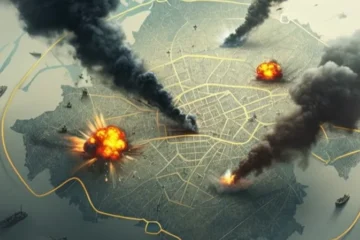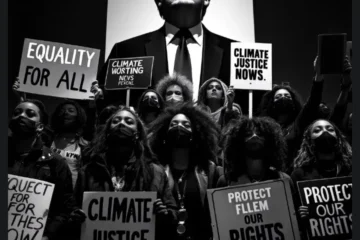Introduction
The discourse surrounding the United States’ aid to Ukraine yesterday, of $61bn,is replete with complexity, embodying a blend of strategic calculations and ethical quandaries. This blog post seeks to dissect these layers, offering a nuanced examination of the arguments for and against the continued U.S. support in the context of Ukraine’s ongoing conflict with Russia. It aims to illuminate the intricate interplay between upholding democratic values and the potential perpetuation of conflict.
1. The Case for Supporting Ukrainian Defence
Strategic Imperatives
Advocates for sustained U.S. assistance to Ukraine argue that such support is indispensable for enabling Ukraine to counter Russian aggression effectively. The aid, which includes financial, military, and strategic resources, is viewed as crucial in enabling Ukraine to defend its sovereignty. This approach is underpinned by a geopolitical strategy that aims to deter aggressive expansion by authoritarian states, thereby reinforcing international norms and stability.
Moral and Ethical Considerations
From an ethical perspective, proponents of U.S. aid assert a moral duty to support Ukraine. They posit that the international community, particularly leading democracies, has an obligation to stand by nations threatened by unprovoked invasions. This stance is rooted in a commitment to global democratic values and the protection of human rights, emphasising the moral high ground of supporting a besieged nation.
Long-term Geopolitical Stability
Supporters also contend that U.S. aid to Ukraine serves broader international interests by maintaining the stability of the global order. This support is intended to prevent future conflicts by setting a robust precedent against violations of international law, thus contributing to long-term global peace and stability.
2. Criticisms of Prolonging Conflict
Endless War Concerns
Conversely, there is a growing concern among critics that U.S. aid might extend a conflict with no definitive victory in sight. These critics argue that continuous military support could embolden Ukraine to seek an unachievable military resolution, potentially leading to an indefinite and destabilising conflict that could spread beyond Ukraine’s borders.
Impact on Peace Negotiations
Critics also highlight how sustained aid may undermine peace efforts by hardening the resolve of both parties to the conflict. There is apprehension that such support reduces the incentive for diplomatic engagement, potentially prolonging the war and exacerbating human suffering.
Moral and Humanitarian Dilemmas
The ethical implications of potentially elongating the conflict are profound. Critics stress the humanitarian costs—highlighting the loss of lives, displacement of people, and widespread destruction. They question whether the defensive benefits of aid justify the severe humanitarian impacts, suggesting a reevaluation of strategies that favour prolonged military engagement over negotiation.
Risk of Regional Escalation
The possibility of the conflict escalating into a wider regional, or even global, confrontation is a significant concern. Such an escalation could transform the Ukrainian conflict into a broader geopolitical crisis, with far-reaching consequences for international security and stability.
Conclusion
The debate over U.S. aid to Ukraine reflects deep-seated tensions between the immediate imperatives of national defence and the long-term goals of peace and stability. As the situation evolves, the international community must navigate these complexities with a balanced approach that considers both the strategic imperatives and the ethical consequences of prolonging conflict. This blog has aimed to unpack these issues, providing a platform for further reflection and discussion on one of the most pressing geopolitical dilemmas of our time.
Call to Action
We invite readers to reflect on these points and contribute their perspectives in the comments below. How should the international community balance these competing concerns in Ukraine and similar conflicts around the world?
This blog seeks to foster a more informed and diverse discussion on international aid and conflict resolution, encouraging a deeper understanding of the multifaceted challenges involved.
About the Authors: DVC Consultants – Political Science Consulting
DVC Consultants is a firm specialising in political science consulting, with a focus on advising organisations on the implications of political developments, policy alterations, and geopolitical dynamics. Our expertise helps clients navigate the complex political landscape, enabling them to mitigate risks and seize opportunities emerging from political shifts.
Our consulting services include comprehensive scenario planning tailored to anticipate and strategise for various political events such as elections, legislative changes, and shifts in international relations. By providing a deep understanding of how such events could potentially impact business environments, DVC Consultants play a crucial role in helping organisations maintain a competitive edge in an ever-evolving global arena.
This expertise underscores our commitment to delivering nuanced insights and strategic guidance that empower our clients to make informed decisions, ensuring they are well-prepared for any political contingencies that might affect their operations. Through our rigorous analysis and strategic foresight, DVC Consultants strive to equip organisations with the tools they need to thrive amidst the complexities of global political dynamics.
If you would like to know more about what we do contact q.anderson@dvcconsultants.com




0 Comments